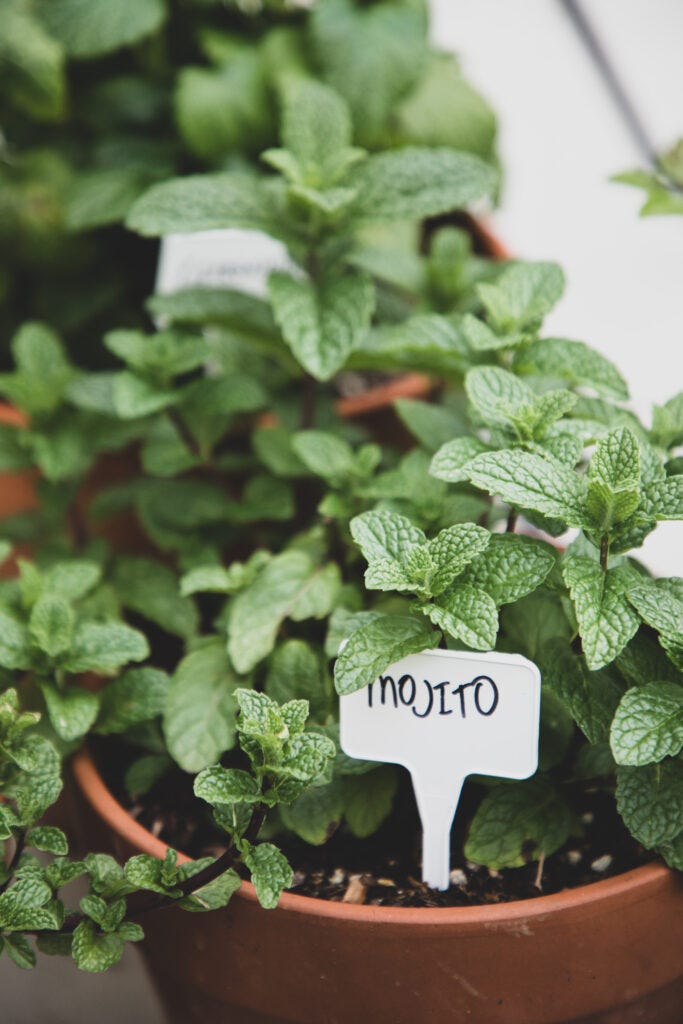Growing and Using Culinary Herbs for Everyday Cooking
Advice on how to grow herbs you can cook with
Whenever someone asks me, “Where should I start with gardening?” I hardly wait for them to finish before enthusiastically recommending, “herbs!” My suggestion is rooted in several compelling reasons. Firstly, herbs are easy to cultivate, making them perfect for beginners. They're forgiving and thrive with minimal fuss, they can be grown indoors or outdoors, in pots, on balconies or patios. Secondly, their everyday utility in the kitchen is unmatched. Incorporating freshly grown herbs into your meals elevates flavors in a way store-bought ones seldom do, offering a tangible taste of the benefits of home gardening. Thirdly, the repetitive harvesting of herbs is not a “one-and-done” type of crop (like cauliflower, broccoli, cabbage). This regular interaction provides invaluable, hands-on gardening experience with minimal time and resource investment. Plus, the culinary possibilities with homegrown herbs are virtually endless.
In today’s post about herbs I’ll discuss:
Choosing herbs, including *my top 15 favorite herbs to grow*
Understanding your climate and space
Choosing between seeds and seedlings plus a note on propagation
Planting and caring for your herbs
Harvesting, storing, and preserving your herbs
Ideas on how to incorporate herbs in your everyday cooking
Choosing Your Herbs
Embarking on your herb gardening journey begins with selecting the right herbs. Understanding the difference between perennial, annual, and biennial herbs is crucial in this process. Perennials are plants that live for more than two years, often surviving through the winter and blooming again in spring. In contrast, annuals complete their life cycle in one growing season, requiring replanting each year. Biennial plants are a specific category of plants that complete their life cycle over two years. Here’s a rundown of some popular culinary herbs, categorized by their life cycle:
Perennial Herbs
Chives: Thriving in full sun to partial shade, chives offer a mild onion-like flavor, ideal for garnishing salads, soups, and egg dishes. They also produce pretty, purple flowers that can be used in your cooking.






